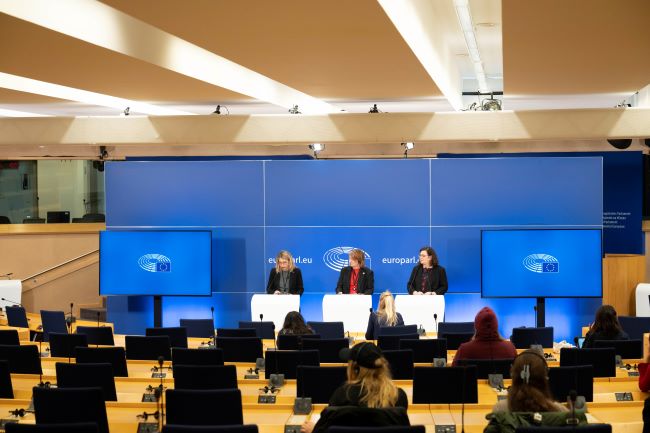Parliament and Council negotiators reached a provisional deal to revise rules on preventing and combating human trafficking on Tuesday.
The informal Agreement reached by Parliament and Council on Tuesday night will expand the scope of the current directive to include forced marriage, illegal adoption, exploitation of surrogacy and better support for victims.
The Agreement will also – make sure anti-trafficking and asylum authorities coordinate their activities so that victims of trafficking, who are also in need of international protection, receive appropriate support and protection and that their right to asylum is respected; – criminalise the use of services provided by a victim of an offence concerning trafficking in human beings, where the user knows that the victim is exploited, to reduce the demand driving exploitation; – introduce penalties for companies convicted of trafficking, including excluding them from tendering processes and reimbursement for public aid or subsidies; – ensure that prosecutors can choose not to prosecute victims for criminal acts they were coerced into committing and that they receive support regardless of whether they cooperate in investigations or not; – ensure support to victims using a gender-, disability- and child-sensitive approach and based on an intersectional approach; – guarantee the rights of persons with disabilities and appropriate support, including appointing guardians or representatives, to unaccompanied children; – allow judges to consider the non-consensual spreading of sexual images or videos as an aggravating circumstance when handing out sentences.
Eugenia Rodríguez Palop said: “As Parliament, we had an ambitious position and the Council has shown itself open to dialogue, with the initial push of the Spanish Presidency. We all had to give in, but the result is good. We have introduced, amongst others, the exploitation of surrogacy, improved prevention, strengthened investigation and prosecutions as well as coordination and monitoring, and included measures to better protect, assist and support all victims. Today we are a little closer to ending this form of barbarism.”
“I’m happy with this Agreement. It strengthens the protection of victims of trafficking, with a special focus on the most vulnerable victims including persons in need of international protection, women and girls and children. It requires the Member States step up their response to trafficking in human beings including mandating national anti-trafficking coordinators. We have agreed to tackle exploitation of trafficking victims in its most obvious forms. Even though I would have liked to have a more extensive ban on exploitation including sexual exploitation, this is already an improvement on current legislation. It can never be okay to take advantage of trafficking victims,” Malin Björk said.
Parliament and Council will have to approve the Agreement formally. The new rules will come into force twenty days after their publication in the EU Official Journal, and member states have two years to implement the provisions.

